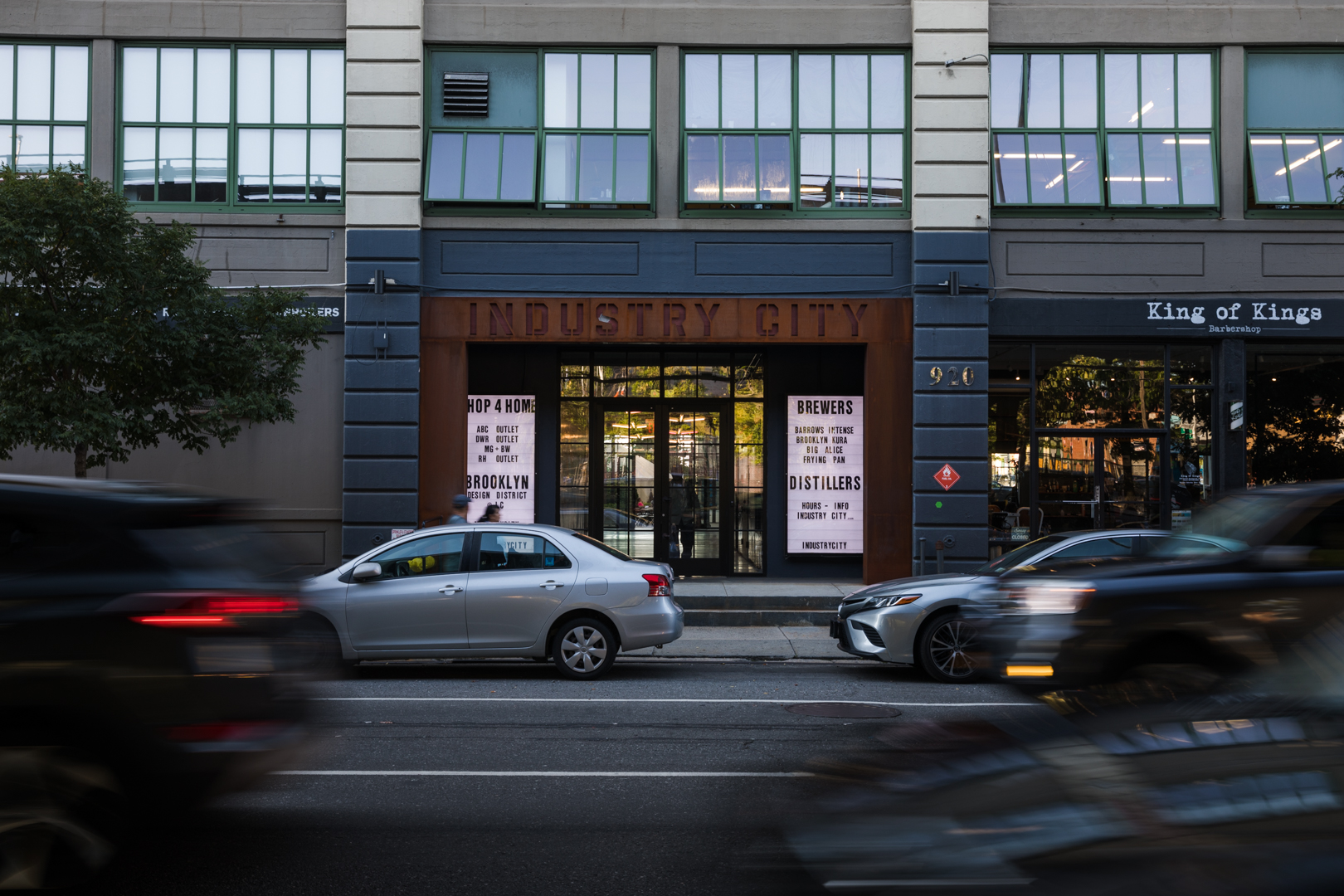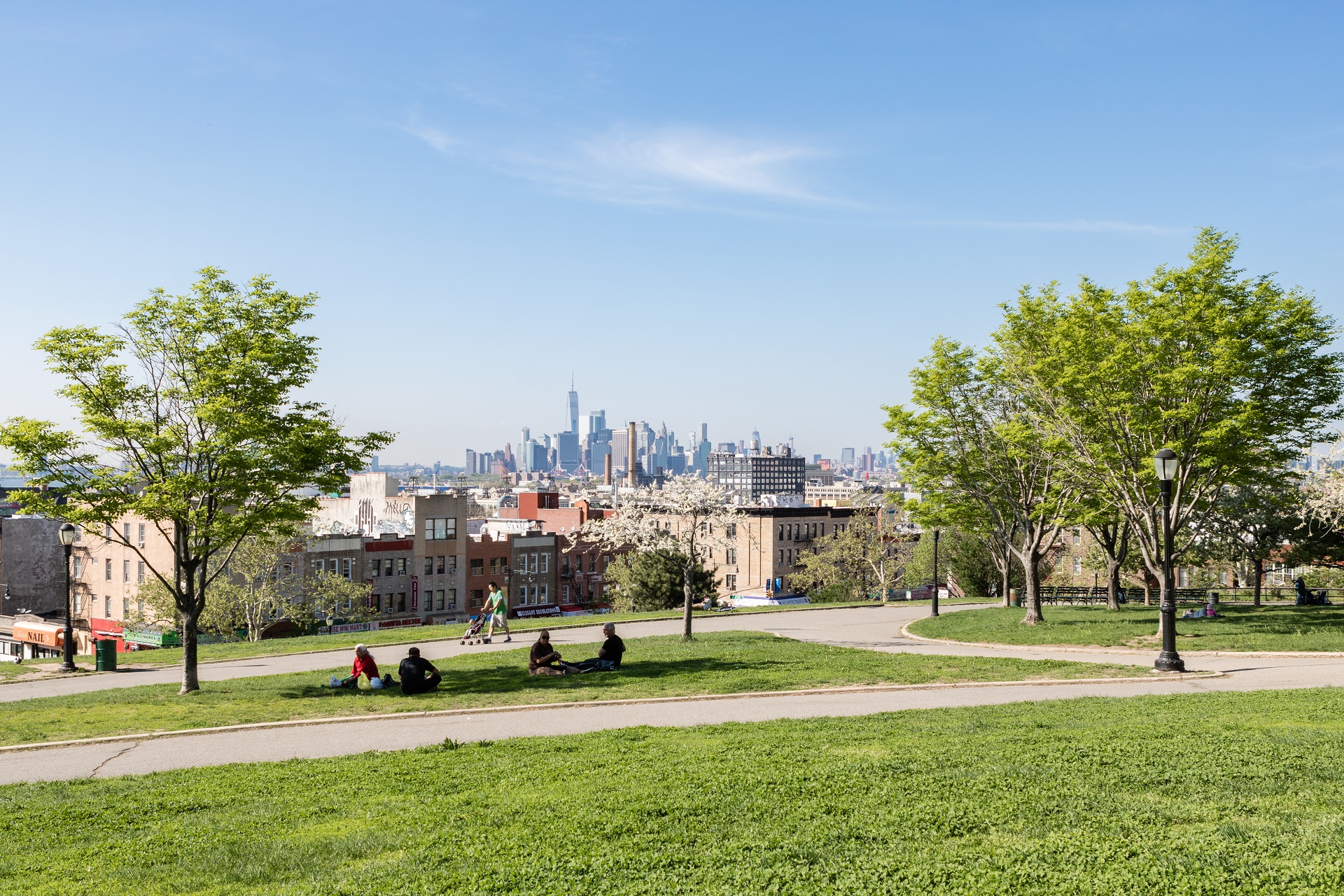Opponents of Industry City expansion deliver petitions to influential pol
Sunset Park residents demand Menchaca vote against rezoning.

Industry City. Photo: Paul Frangipane/Brooklyn Eagle
More than 75 Sunset Park residents rallied against Industry City’s proposed rezoning on Thursday in front of the office of Councilmember Carlos Menchaca, who has the final say on whether to kill or approve the application for the expansion.
Protesters urged him to vote against the plan, brandishing signs and chanting, “Sunset Park is not for sale!” and, “Industry City has got to go!”
The politician was present for the hour-long rally, nodding his head during chants and accepting a petition with more than 3,000 signatures against the rezoning. At the end, he thanked the crowd in English, Spanish, Mandarin and Arabic.
